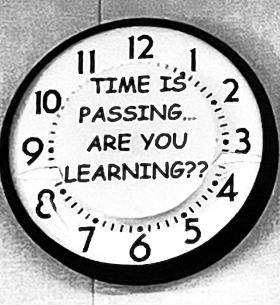We Need To Stop Obsessing Over Time
Time is a currency. We add too much value to something we created.
June 15, 2023
The fact that it is 4:22 pm is being screamed at me by every medium. It’s 4:22 says my Chromebook, phone, oven, microwave, and watch. We’re unable to be where we are, and do what we do, without relating it back to time. Time is currency: similar to money, time can be wasted, invested, or saved.
My relationship with time began the moment I showed face in the delivery room. At that moment, I was placed under the sun’s schedule where the sun’s orbit and I joined harmoniously to determine my routine!
Though, my war with time began when I was around ten. By ten, I was old enough to have duties when the big or little hand hit a certain number. In order to do what I was supposed to do, or be where I was supposed to be by these numbers, I was gifted an alarm clock with laser projection onto the wall.
Using my polished math skills, I would calculate with my fingers how much time I had left before school. If 10 to 11 to 12 to 1 to 2 to 3 to 4 to 5 to 6 left me with 8 fingers raised, I was doomed. How would I be able to read Dr. Seuss eloquently, and master the twelves in multiplication if I was getting merely eight hours of sleep? By the age of ten, I was being strangled by time; constantly worrying about whether I was making the best of the time I had, or if I had enough of it.
The concept of time is not a fixed or objective truth, but rather a product of social and cultural norms and conventions. Michael Foucault speaks on how we have transferred from a society where power comes from a sovereign, to a society where power is exerted through a form of internalized discipline. We’ve found structure by disciplining each other through deadlines; like the bell ringing at the end of class and rigid work schedules. Time management ensures productivity which helps create value. But who benefits from that discipline? Who gets the value?
Since the 16th century under America’s capitalist system, companies have wielded time as a way to push productivity. Because why not? The more productive we are within our work day the more revenue is generated.
The culture of overworking is all we know, we work long hours and sacrifice personal time at the cost of both our physical and mental health! We’ve been taught to equate our worth to our productivity, because time is the great equalizer as, “We all have the same 24 hours in a day”
If we were to let go of time in the U.S, say tomorrow, chaos would follow suit. Our relationship with time is so heavily integrated in our daily lives that disconnecting with the clock would be like removing the building blocks of our country. But as Maya Angelo said, “ if you don’t like something, change it and if you can’t change it, change your attitude.”
Time should merely be a concept for the purpose of referencing, rather than dictating. Understanding that we’re not defined by whatever is stereotypically deemed as productive, is a crucial step in repairing our toxic relationship with time. Just because we created it, does not mean we are obligated to live by it.


